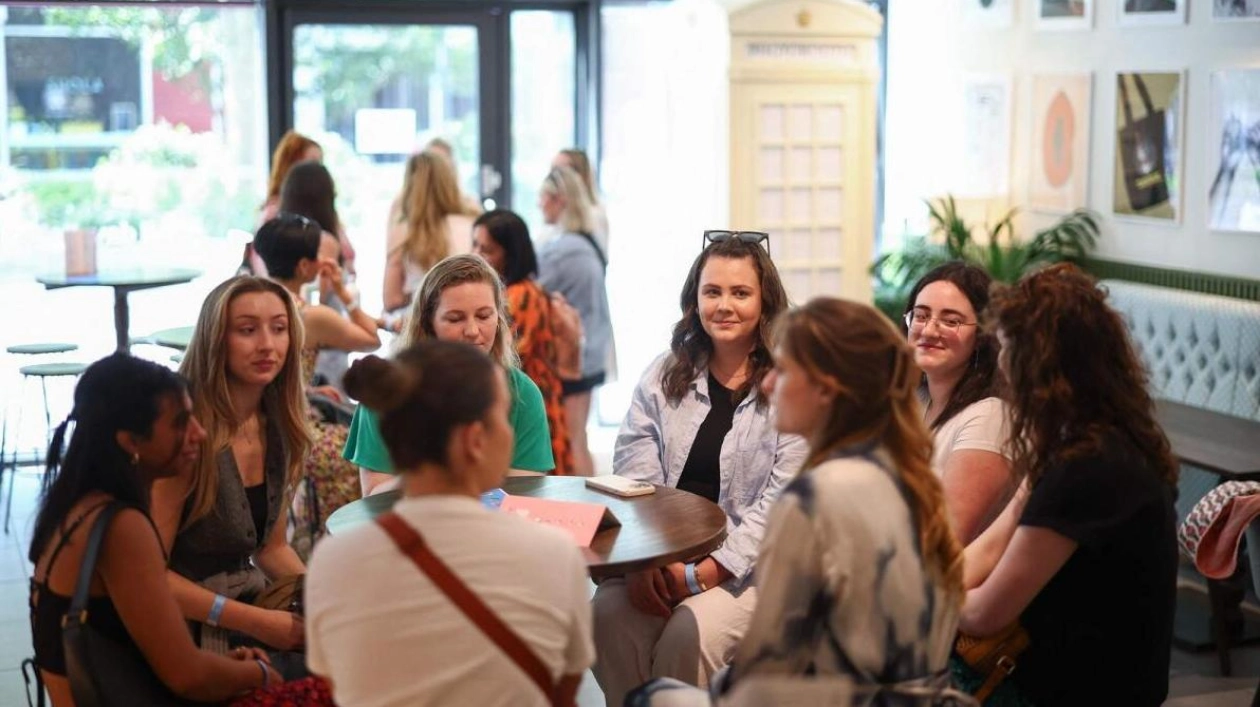Josephine Wright, a software engineer, introduces herself to another woman at a west London bar, cocktail in hand. Like the 70 other young women who paid £7.50 ($9.65) to attend, her goal is clear: to find the perfect housemate. For them, this fee is a small investment to expedite a housemate search that could otherwise drag on for months in a city with high rents and limited options.
The attendees quickly engage in question-and-answer sessions with potential housemates, discussing preferred neighborhoods, professions, backgrounds, and hobbies. Despite the two-hour time constraint, the atmosphere remains relaxed, with lively chatter and laughter mingling with the sounds of cocktail shakers behind the bar. Wright, 25, mentions her top three neighborhoods: Greenwich, Walthamstow, and Lewisham. Another participant stands by a sign labeled 'East', indicating her interest in east London rentals. Both wear blue wristbands, signifying their priority is finding flatmates before a living space, while fewer wear purple, indicating they already have a rental and seek occupants.
Rachel Moore, co-founder of event organizer Girlies Guide, notes the unique trend of older individuals in their 30s and 40s sharing houses in London, a situation many feel forced into rather than desired. Many attendees can't afford to rent a flat alone in London, even with budgets up to £1,500 ($1,900) per month. Ioanna, a 22-year-old intern from Greece, observes that a solo nice flat could cost between £1,500 to £2,000 per month, while shared accommodations offer rooms for under £1,000.
As London faces rising rents, more young professionals are opting for house shares. Antonio Mele, an associate economics professor at the London School of Economics, describes this as a new phenomenon driven by higher interest rates, which pressure landlords to raise rents or sell properties, leading to fewer rentals and higher prices. The new Labour government plans to alleviate the crisis by easing planning restrictions to build more homes, though this could take years due to site shortages and potential opposition.
On average, renters spend 35 to 40 percent of their income on rent, a proportion Mele expects to rise. Sharing living costs has thus become a necessity, though finding a compatible housemate isn't easy. Megan Brewer, 35, who moved from Sydney, notes the lack of responses to her inquiries. Some landlords exploit the situation by converting living rooms into bedrooms or dividing rooms, advertising them at exorbitant prices.
Moore and co-founder Mia Gomes experienced the rental market's challenges before launching their housemate 'speed dating' events. Gomes recalls landlords seeing dozens of groups within days of listing properties, leading to bidding wars and overpriced rentals. Despite the difficulties, many find living in London, with its vibrant job market and cultural scene, worth the trade-off.
Wright concludes, "I'll have to cut down on my savings. But I think that is a good trade-off. I'm in my 20s. I want to live life, be out there."






